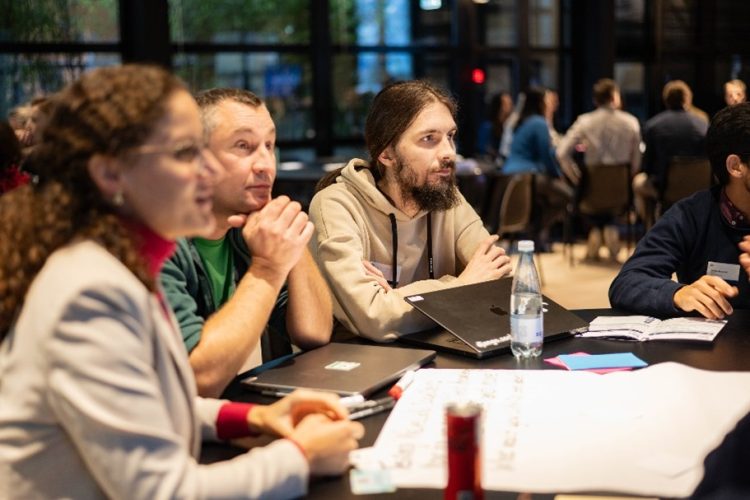The European Union’s Mission “Restore our Ocean and Waters by 2030” (or Mission Ocean & Waters) is a cross sectoral framework that aims to improve the health of European ocean, sea, and freshwater ecosystems.
To do this, it has set ambitious targets for citizen engagement. This initiative calls upon Europeans to actively participate in restoring aquatic ecosystems through participation in citizens’ assemblies, aquatic citizen science, and activities to allow citizens to co-design the future of European coastal communities, while sustainably managing their marine resources.
Today, the Horizon Europe-funded project “Preparing the Research and Innovation Core for Mission Oceans, Seas, & Waters” (PREP4BLUE) has published an assessment of the state of citizen participation in Mission Ocean & Waters. This highlights several challenges to reaching the citizen engagement goals set by the Mission.
Dr David Whyte is a Senior Postdoctoral Researcher with MaREI: The SFI Research Centre for Energy, Climate and Marine, University College Cork, Ireland, and leads the citizen engagement research with PREP4BLUE.
“What Mission Ocean & Waters is trying to achieve is quite unique”, David explains. “It is superficially an environmental project, but the way it goes about it – by establishing deliberative democratic initiatives, increasing social inclusion through its activities, and working with the European Investment Bank to unlock funding for marine restoration – make it potentially as much a political, social and economic transformation as an environmental.”
“We set out to study barriers to these transformations and found that they certainly can’t be taken for granted simply through the existence of the Mission Ocean & Waters framework.”
“Take gender inclusion as an example: PREP4BLUE’s research shows that while there is a strong gender balance observed among participants at Mission-related events, men tend to dominate the higher-level panels with politicians. A closer eye on the quality of roles given across diverse participants is necessary from an inclusion perspective.”
Key areas of focus for the Mission’s success in terms of citizen participation
To ensure meaningful progress, PREP4BLUE’s research suggests that Mission-related activities should prioritize the following areas:
Inclusion: Activities should be co-designed with target communities, allowing for collective problem-solving. It is critical to avoid tokenistic gestures of inclusion and instead ensure that participation and facilitation expertise are integrated from the outset.
Increasing Ocean Literacy and Mission Awareness: Raising awareness about the Mission itself and fostering emotional connections between citizens and aquatic environments are key to increasing engagement. Embodied and practice-based activities, such as artistic and food-based interactions with the ocean, can deepen emotional ties and improve ocean literacy.
Addressing Disparities Across the EU: A one-size-fits-all approach will not be effective in engaging citizens across Europe. The Mission must be flexible in its approach, recognizing the diverse starting points and infrastructures across Member States.
Strengthening Aquatic Citizen Science: It is essential to engage with the structural and cultural aspects of citizen science, ensuring that citizen-generated data can meaningfully contribute to policy and governance.
The Mission’s success in restoring Europe’s oceans and waters by 2030 depends on the active and meaningful engagement of its citizens. While the challenges are considerable, they can be overcome through targeted actions and collaborative efforts among the diverse actors working within the Mission. However, such progress will require sensitivity to Europe’s complex social fabric, as well as a willingness to co-create solutions with the citizens at the heart of this transformation.
This research has been published in the journal Maritime Studies in a paper called “Planning for citizen participation in the EU Mission to restore our ocean and waters by 2030”.


